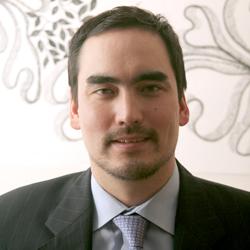Wu Urges Protections for Wireless Consumers
Today’s wireless industry is “a spectrum-based oligopoly — two dominant firms, and four total — that exercises great power over the wireless economy,” said Wu in his statement at the July 11 hearing. Carriers lock American consumers into long contracts with confusing billing plans and block their phones from working with other carriers, he said.
Consumers should be able to use the same phone when they switch carriers, said Wu. He proposed device portability rules, a parallel to the 2003 number portability rules that allow users to keep the same phone number across different carriers.
“Imagine buying a television that stopped working if you decided to switch to satellite. Or a toaster that died if you switched from Potomac Power to ConEd,” said Wu. “You’d be outraged — for when you buy something, that usually means you own it.”
Wu, a leading authority of telecommunications law, frequently speaks on technology issues in the media and before Congress. He is the co-author of “Who Controls the Internet?: Illusions of a Borderless World” (Oxford University Press, 2006) and a regular contributor to Slate magazine. In 2006 he was recognized by Scientific American for his advocacy of “network neutrality,” the principle that all Internet service-providers should carry all information equally, regardless of the content source.
Columbia Law School, founded in 1858, stands at the forefront of legal education and of the law in a global society. Columbia Law School graduates have provided leadership worldwide in a remarkably broad range of fields – government, diplomacy, the judiciary, business, non-profit, advocacy, entertainment, academia, science and the arts.
Led by Dean Schizer, Columbia Law School joins traditional strengths in international and comparative law, constitutional law, administrative law and human rights law with pioneering work in the areas of intellectual property, digital technology, sexuality and gender, and criminal law. The Law School offers J.D., J.S.D. and LL.M. degree programs to a diverse student body. For further information, visit www.law.columbia.edu.
